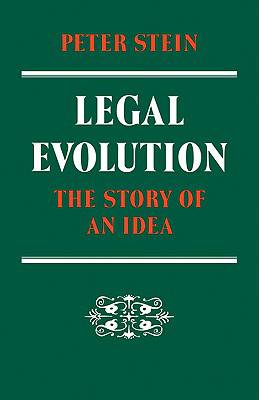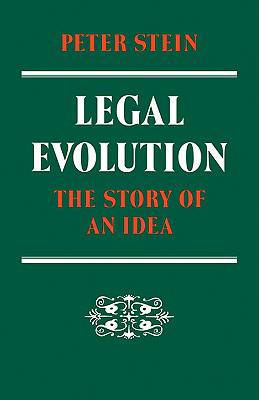
- Afhalen na 1 uur in een winkel met voorraad
- Gratis thuislevering in België vanaf € 30
- Ruim aanbod met 7 miljoen producten
- Afhalen na 1 uur in een winkel met voorraad
- Gratis thuislevering in België vanaf € 30
- Ruim aanbod met 7 miljoen producten
Zoeken
Omschrijving
Legal evolution is a way of explaining how the law changes. Basically it suggests that a society's law develops along predetermined lines parallel to those of its other institutions. The idea came to prominence in the mid-eighteenth century as a response to the difficulties experienced by theorists in the field of natural law when applying the notion of universal natural rights to different types of society. Professor Stein traces the beginning of the idea and considers the theories of its main exponents in relation to the prevailing legal thought of their times. He examines in particular the special place of Roman law in shaping ideas of legal development. Finally he considers the different types of opposition which Maine's ideas encountered in the late nineteenth century and the attempts to retain the essentials of legal evolution in a modified form.
Specificaties
Betrokkenen
- Auteur(s):
- Uitgeverij:
Inhoud
- Aantal bladzijden:
- 144
- Taal:
- Engels
Eigenschappen
- Productcode (EAN):
- 9780521108003
- Verschijningsdatum:
- 13/04/2009
- Uitvoering:
- Paperback
- Formaat:
- Trade paperback (VS)
- Afmetingen:
- 140 mm x 216 mm
- Gewicht:
- 190 g

Alleen bij Standaard Boekhandel
+ 92 punten op je klantenkaart van Standaard Boekhandel
Beoordelingen
We publiceren alleen reviews die voldoen aan de voorwaarden voor reviews. Bekijk onze voorwaarden voor reviews.











